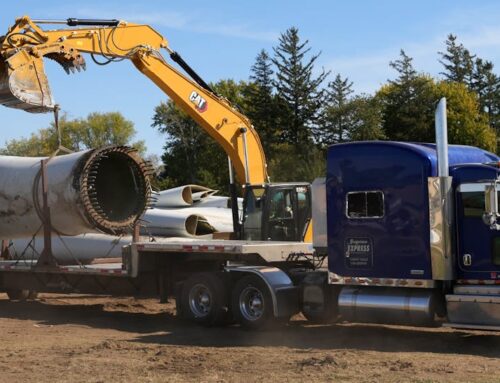Industrial Decarbonisation Transforms Energy Across Sectors
October 4, 2024

“Our data centres are located throughout the Nordic region, which benefits from a cool and consistent climate and an abundant range of low carbon and renewable energy sources, such as hydro, solar, geothermal and wind power,” Erling Guðmundsson, Chief Operating Officer at atNorth, explains.
“Data centres are an integral part of society in the Nordics and this means that the concept of heat reuse is widely accepted and encouraged as part of the region’s circular economy principles – many energy providers are open to this process.
“The ability to recycle waste heat from the data centre cooling process not only makes our data centre sites highly energy efficient but also enables clients to decarbonise their digital Infrastructure.”
Emphasising that decarbonisation is a key part of atNorth’s mission, Erling shares how atNorth can significantly contribute to industrial decarbonisation thanks to the business’s sustainable data centre solutions and services. These include:
-
Renewable energy use: atNorth’s data centres run entirely on renewable energy sources. Because they are located in Nordic countries with abundant low-carbon and renewable energy, all operations use only renewable energy, reducing overall carbon footprint
-
Energy efficient design: The company employs innovative design and operational practices to maximise energy efficiency, with strategic locations chosen to enable more efficient cooling and state-of-the-art infrastructure and cooling technologies leveraged to minimise energy consumption
-
Heat reuse technology: This further reduces waste and supports circular economy principles as excess heat is captured and recycled for district heating, providing heat and hot water to local communities
-
Decarbonisation platform for clients: atNorth provides a pathway to low-carbon IT operations for organisations and helps clients meet their sustainability and ESG targets
-
For example, one client, Shearwater Geoservices, achieved a 92% reduction in CO₂ output and an 85% reduction in costs by moving its computing infrastructure to atNorth’s Icelandic data centre
-
-
Industry commitments: atNorth is actively involved in industry-wide sustainability initiatives and is a Member of the iMasons Climate Accord, committed to reducing carbon in digital infrastructure, as well as a Partner in the Climate Neutral Data Center Pact, working towards making Europe climate neutral by 2050.
By providing these sustainable, energy-efficient data centre solutions and subsequent sustainability, atNorth enables businesses across various industries to reduce their carbon footprint while meeting their high-performance computing needs, thus contributing significantly to industrial decarbonisation efforts.
Fabian echoes this sentiment, adding: “This is all about collaboration. We’ll always need outstanding relationships with those who make our products — we used to have quite transactional relationships, but we want to move to long-term relationships.
“We want to move to co-investments, we want to move to co-branding. We need, of course, phenomenal collaboration with regulators. Collaboration is the name of the game.”
Fabian agrees that being part of the wider decarbonisation ecosystem is not only for the benefit of all businesses and operations but also the planet at large.
“We believe the world needs different responses to the energy system,” he adds. “The notion of being different and to seek out the next level of differentiation is a very important thing.”
If there’s an organisation to support and help drive industrial decarbonisation, it’s Schneider Electric.
The French multinational is focused on promoting decarbonisation and sustainability, through initiatives such as its Materialize programme, which aims to collaborate with the mining and minerals sector to accelerate decarbonisation. As well as this, Schendier has a digital transformation team that helps clients digitise their operations while considering efficiency and sustainability.
Search
RECENT PRESS RELEASES
Related Post


